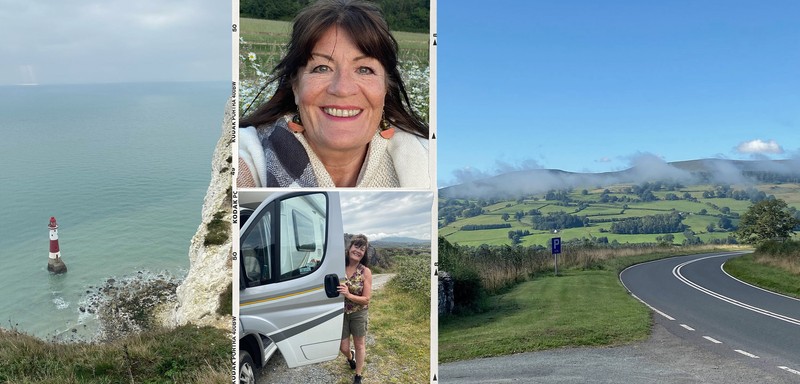
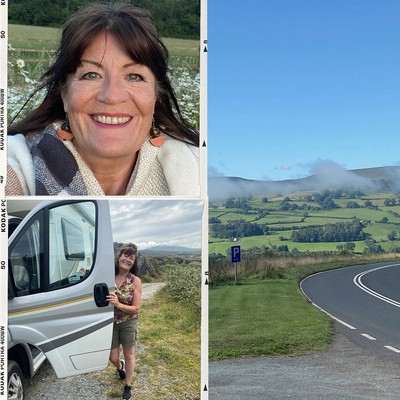
One Woman Shares Her Inspirational Story
In my early 30s, I changed careers and became a journalist. I was also a single mother, but I spent ten years in radio and then I moved into television in my 40s. I was writing and producing, and was quite good at my job, but it was a difficult time. When I was 49, my brother died suddenly from lung cancer (he was 53) and I had a hysterectomy after they found pre-cancerous cells, which put me straight into early menopause. Then, my daughter left to go to university, so I decided to take a year off from the BBC and travel round the world. You could say that’s when I first got the bug for being on the road.
Travelling gave me so much confidence. I felt ageless and like I had a voice and a purpose, so I struggled with coming back into the workplace where that wasn’t really the case. Everything was okay for a while but then my sister died of lung cancer, also aged 53, and that threw me into quite a downward spiral. Ageism at work, coupled with my grief and the significant hormonal changes, made me feel quite marginalised. I was nearly 60 by this point, and I felt completely broken. My daughter was a pillar of strength for me, but it would take all my energy to get up and go to work only to come home crying and face doing it all over again. That’s when I knew things had to change.
I’d always wanted to travel more in my retirement. But I didn’t really have a plan straight away. It took a few years to come up with the idea of buying a motor home – I’d never driven one before – but it was like a lightbulb turning on one day. I was also very disillusioned with this idea of everyone going out to work to earn as much money as possible to buy lots of things they didn’t need to fill up their houses – so much so they didn’t actually have any time to enjoy being with their friends and family. I wanted to prove you could live with very few possessions and still be happy.
I got rid of my flat, most of my possessions and bought a motor home. I can remember the day I turned the key in the lock of the door and hit the road. I had no plan, no direction but I couldn’t wait to see where I was going to end up. At the beginning, I was very naïve. Luckily, the motor home dealers agreed to let me stay on site for the first night so I could work out how to run the electricity and the water, which just tells you how little I really knew.
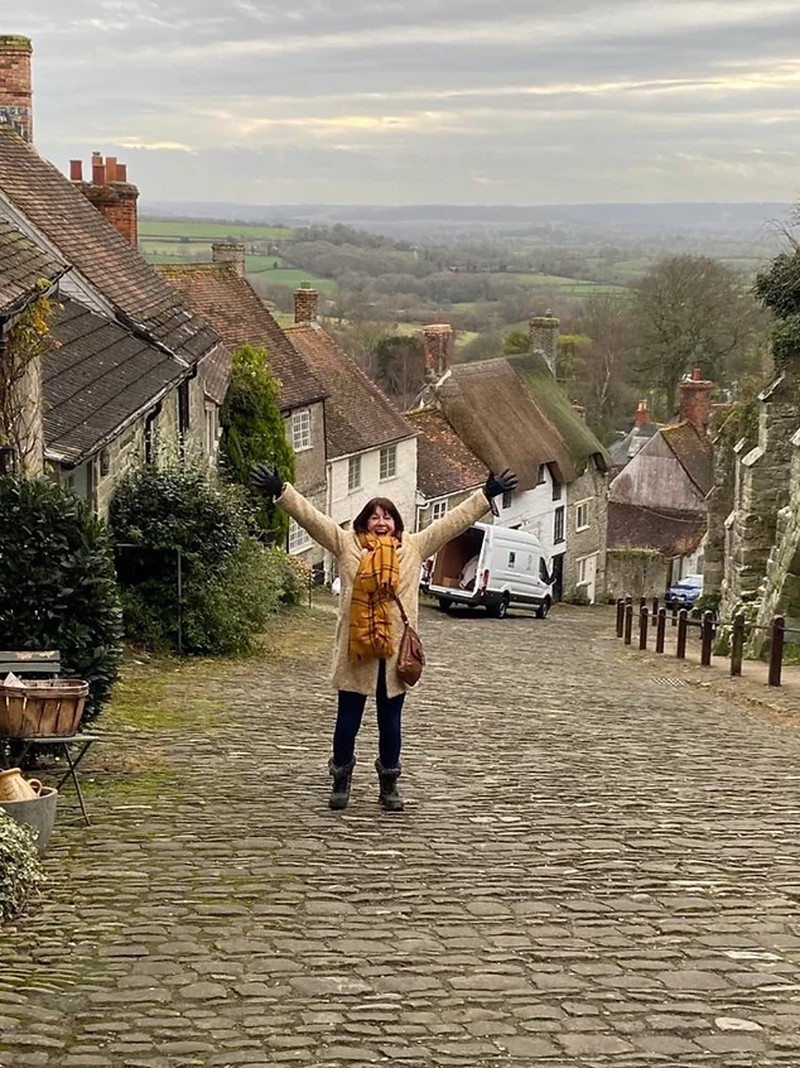
The only person who didn’t think I was crazy was my daughter Samantha. I think she did worry at first, but she said to me just the other day that she no longer does. She said she can see my vision now. She always believed in me, but I think even she had doubts in the beginning!
All I knew is that this is the way I would find my voice again. I also hoped I’d then be able to use it to challenge the ‘anti-ageing’ narrative I found so frustrating. This idea that being older was something to be fearful of or that older people didn’t have any relevance in the workplace, or even society at large. Whether we like it or not, we’re all ageing – some faster or better than others – but we’re all going the same way. I want the world to be pro-ageing so younger women today don’t fear losing themselves or think there isn’t a life beyond 50.
This entire journey has been full of highs and lows. Little did I know setting off in September 2019 that the world would soon go to pot. One of the lows was definitely the fact that I spent nine months of the first year of my journey in various lockdowns. In the first lockdown, I managed to find a kind man in Lancaster who had a little campsite he let me park up in. Fortunately for me, there was another couple in the same field who had just come over from New Zealand and got stuck here, so I wasn’t completely alone. We kept our distance, obviously, but we were able to go for walks and bike rides to keep ourselves occupied.
During the second lockdown, I found myself in Blakeney in Norfolk. Although it was a beautiful area, and I was able to do lots of walking and look at the sea, I found it more difficult, mentally speaking. I was in a field on my own, it was winter so the sun would set at 4pm and I was stuck in the motor home in the dark. Then, the pipes on the motor home froze, so I had to find snow and melt it so I could have a strip wash and make drinks. Samantha was also due to visit for Christmas but had to cancel when the prime minister only gave people 24 hours to travel before tighter restrictions came into force. That was possibly the only time I considered giving it all up. I just thought, ‘What are you doing?’
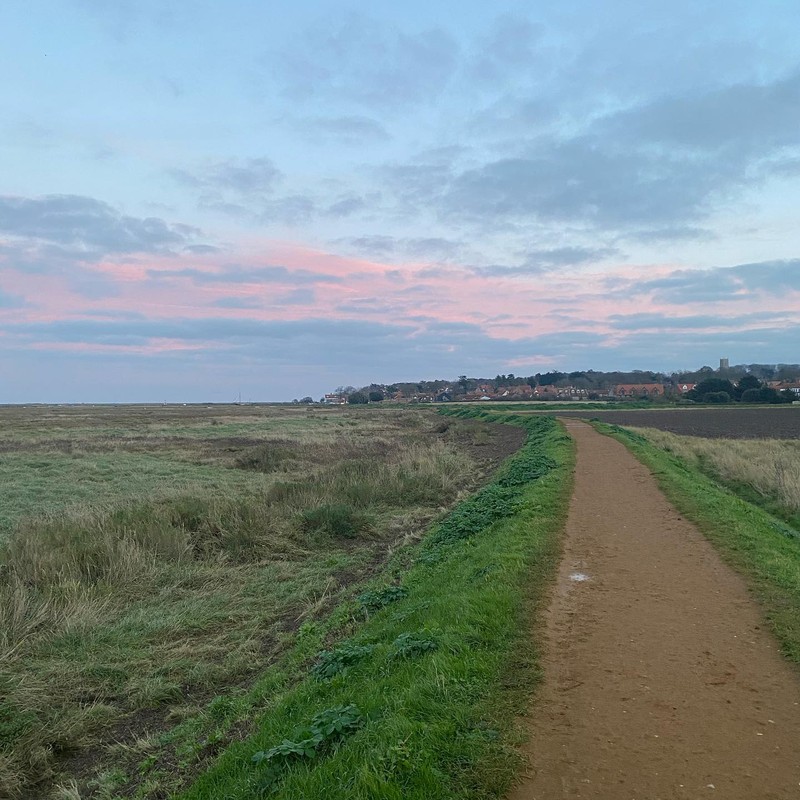
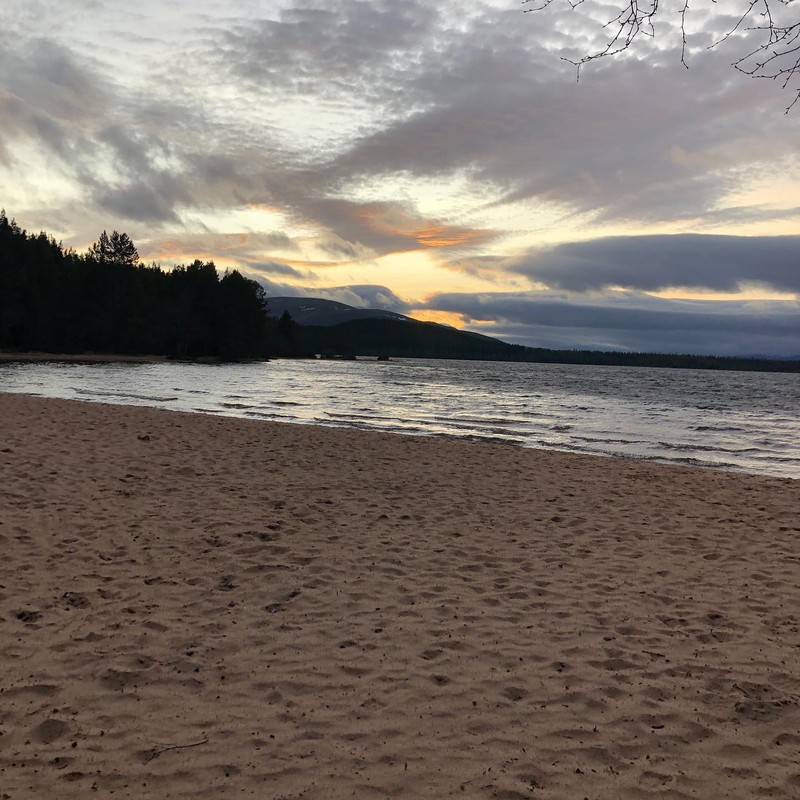
Social media ended up being a total saviour. That second lockdown was when I set up my Instagram and started doing Instagram Lives from the motor home. I thought, if people couldn’t come to me, I’d have to find another way to bring them in. Hundreds of people tuned in and, soon, I found myself setting up interviews with CEOs of advertising companies all over the world to ask them about their ageist campaigns, women who had become models in their 50s and people who had undertaken extreme challenges later in life. That led to me being asked to go on podcasts and, suddenly, the media were interested in interviewing me or having me write columns for them.
Being in my own company isn’t something that bothers me. I’ve learnt to become more comfortable with it, too, over the last couple of years. But the pandemic was difficult because I’d set out on this journey specifically to connect with people, hear their stories and spread the word. I’m also quite a tactile person, so a lack of physical contact or hugs was hard. But I’ve also become much better at picking myself up and carrying on. When the pipes froze, for instance, I had a little cry. But I soon thought right, how do I get round this? It’s really given me a lot of resilience I didn’t know I could have.
As we get older, a lot of women find themselves on their own. But the main problem is they limit themselves in these situations. Maybe they’re used to doing things with a partner or spouse who isn’t there anymore – be it through bereavement or divorce – and they’re frightened of doing things on their own. But I’m living proof that it can be done, and you can have fun doing it. It’s resonating too. The Guardian did a profile on me which was read by nearly a million people in the first four days it went online, and I’ve had thousands of messages and emails from women all over the world who say they feel inspired by what I’ve done. It’s all I’ve ever hoped would happen.
There have been some massive highs on this journey too. Early on, I went to Loch Morlich in Scotland. I’d got to grips with the motor home by then, but I hadn’t processed a lot of my emotions – whether that was what happened with my jobs, the bereavements… I knew it was all still in there. When I got there, I went to the edge of the loch, and I screamed and cried for an entire night. I had all the conversations with people I’d meant to have with them at the time and it was very cathartic. I felt strangely calm afterwards and ready to move forward. I no longer saw any reason to carry that negativity or pain with me.
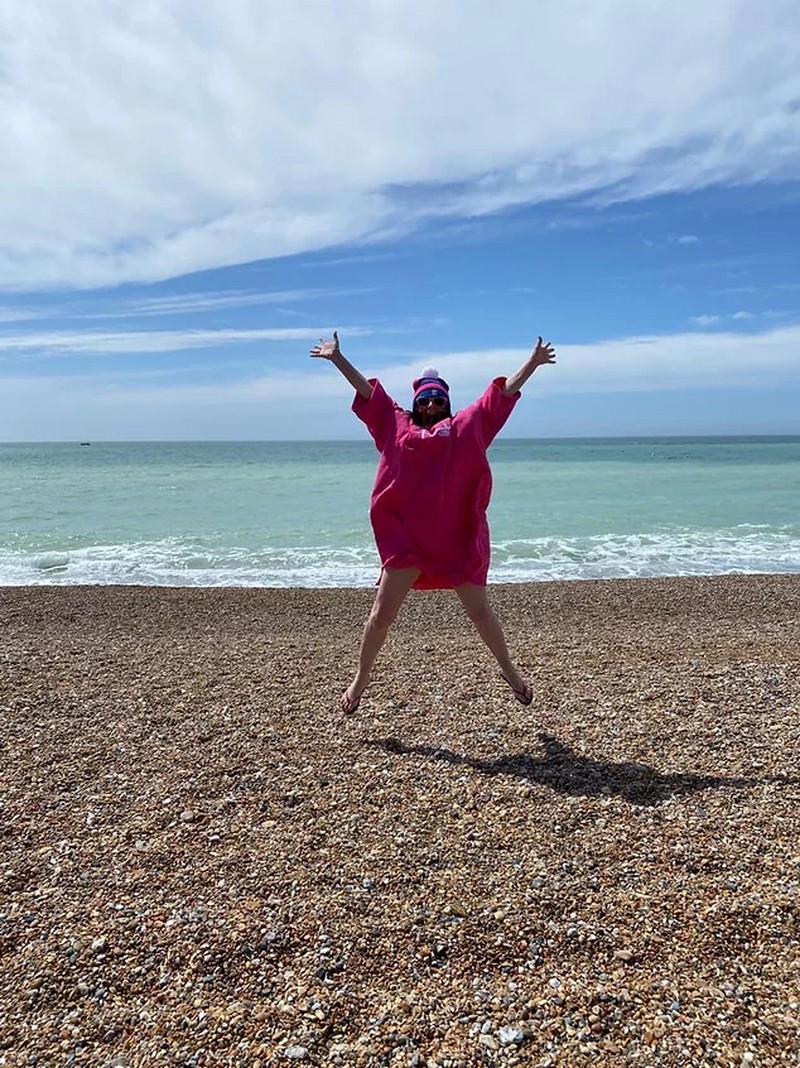
Another highlight came at the beginning of 2022. I went to the Outer Hebrides. I’ve always wanted to go there but I never made it – until a few months ago. I took the ferry from Oban to Barra and made my way up through all the islands. I remember crying when I got to Barra because it was a dream that had come true and really exceeded all my expectations. It was at the top of a hill on Lewis and remember feeling like I’d become the woman I’d always hoped I’d be. I had confidence and self-worth and a role to help other women feel the same way.
I want to be clear – this isn’t a women versus men thing. I’m also very conscious of helping men to understand the changes women go through at this stage of life and what they need to become the best versions of themselves past the age of 50. They can end up feeling really lost in this time, and many couples deal with it by splitting up or divorcing, which could potentially be avoided if there was more awareness and understanding on both sides. The culmination of a career coupled with children leaving home feels like a pivotal moment, even an ending of sorts – but there’s still a lot of life left to live and that can be very overwhelming.
I wish more women had felt comfortable talking about menopause when I was going through it. To some degree, I’m still going through it – I still take HRT now, years later – but when I wasn’t sure what was happening, I wish there’d been a safe space to talk about it. Back then it was still seen as a badge of dishonour – women didn’t want to admit they were struggling. Thankfully, the space has opened up more now, but it still tends to focus on women aged 45 to 60. After that, there’s not a lot that talks to us or about us. A lot of women make it through the menopause, but they’re then left thinking, what now?
Ageism has the potential to be the next #MeToo. So many images you see online depicting women over 60 are of wrinkly hands or feet but here I am, fit and healthy, swimming in the sea and driving my own motor home. That’s not anywhere in the media, really. And if women this age are still in work – very possible now that they can’t collect their pension until later – they’re often treated like part of the furniture. Their opinions aren’t valued and their input is ignored. It’s not okay and I hope the government takes a strong legislative stance on ageism, just like they have with sexism and things like parental rights.
This journey has taught me so many things about myself. It’s taught me I am worthy (having never felt that way my whole life) and that I have a voice that’s worth listening to. It’s also showed me how much courage I have to just keep going when the going gets tough. Fundamentally, though, it’s shown me the kindness of the human spirit. It’s proved to me that most people are kind and that I am too. There’s been so much support and help along the way and any time I’ve faltered I’ve been able to fall back on my Instagram community or people I’ve met on the road, which has been wonderful.
My book is coming out in October. I can’t actually believe I’ve written a whole book about my experiences, but I very quickly started writing and jotting things down from the minute I hit the road back in 2019. Luckily, I’m quite a disciplined person and work very well to deadlines, so I’m probably a publisher’s dream! It all came about after the response to The Guardian article. The publisher was interested in real-life stories and mine fitted the bill. I found a literary agent and she negotiated the deal for me.
Everyone should try something new. It doesn’t have to be as crazy as selling your house and buying a motor home – just find something that makes you feel alive. It could be joining a singing group or booking a holiday but it’s so important to try to live in the moment. It’s a very scary and vulnerable place to be but you have to believe in your own bright future. And don’t be afraid to ask for help. What comes next for me is anyone’s guess. I’m still not a big one for coming up with big plans. There’s still a lot of the UK left to explore but it almost feels like time to go back to my first ever adventure, which might involve going a little bit further afield…
Retirement Rebel will be published by Vertebrate Publishing on 20th October 2022. For now, find out more at ShuvonShuvoff.co.uk and follow Siobhan’s journey @ShuvonShuvoff.
Images courtesy of Siobhan Daniels.
DISCLAIMER: We endeavour to always credit the correct original source of every image we use. If you think a credit may be incorrect, please contact us at info@sheerluxe.com.

